8 Best Programming Languages for Cybersecurity [2023 Guide]
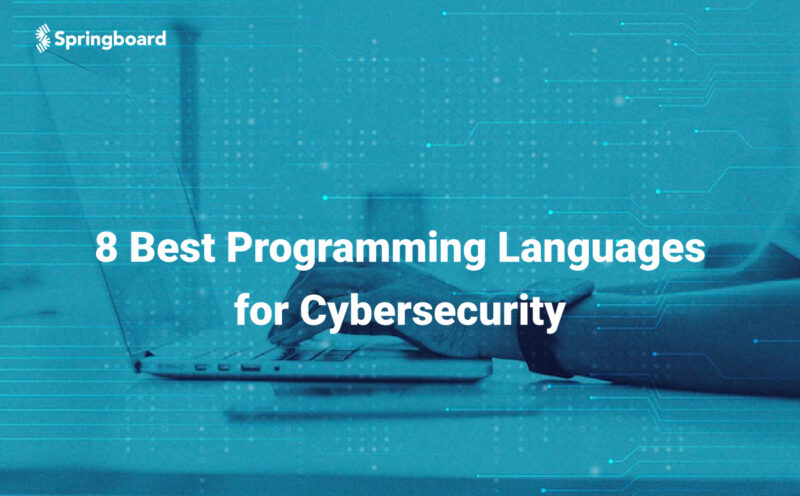
In this article
Given that cybersecurity deals with the protection of digital information and assets, it’s unsurprising that cybersecurity experts need to have a firm grasp of programming languages. After all, if you’re going to thwart hackers, you better speak their (programming) language.
So if you’re looking to launch a career in cybersecurity, and don’t have a background in programming, then you may be wondering—what’s the best programming language for me to learn?
That’s why we’ve created this guide. Below, we’ll tell you all about the eight most popular cybersecurity programming languages, and how they’re each used, so that you can learn the programming language that’s best for your career trajectory.
Can You Succeed in Cybersecurity Without Knowing a Programming Language?
Knowledge of high-level programming languages isn’t necessary for breaking into the industry, as most of the tasks associated with entry-level cybersecurity positions do not require programming skills. But if you don’t want to stay in an entry-level position forever, then you’ll definitely want to learn a programming language, as coding is often required for higher-up positions.
8 Best Programming Languages for Cybersecurity
These are the best programming languages to know to thwart cyberattacks:
JavaScript

JavaScript is a scripting language used to power web pages, and it’s one of the most popular languages in the world. It’s also one of the easiest languages to learn, which makes it an excellent choice for beginners looking to start programming.
General Overview
JavaScript is a scripting language that uses code to tell the computer what to do rather than compiling it into machine instructions like C++ or Java. The language is used in many ways: as part of web development frameworks, such as AngularJS and React, for front-end development, server-side programming, and cybersecurity.
Applications in Cybersecurity
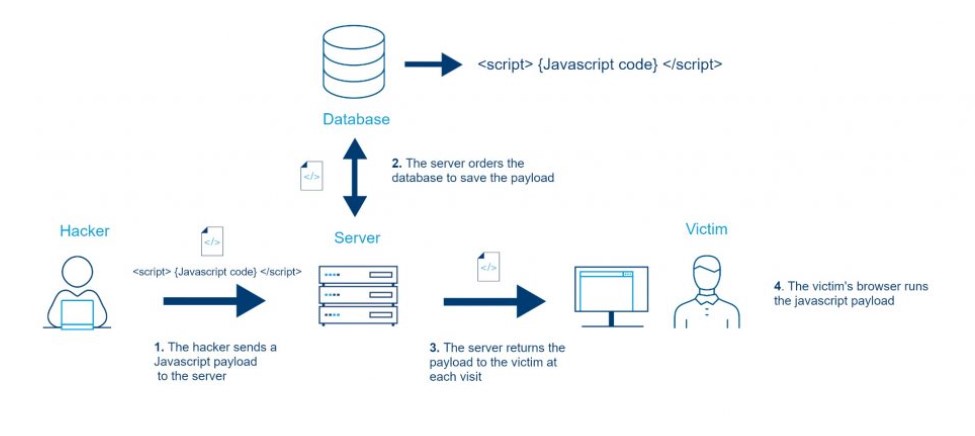
In the cybersecurity field, JavaScript has been used in several ways. For example, you can use it to create cross-site scripting (XSS) attacks, which involve injecting malicious code into a website or app. These attacks target websites that use user input and then send it back to the user without any validation checks or escape characters. Often, these attacks will use an image tag or another tag that loads external content into a webpage’s DOM (Document Object Model). This allows attackers to inject code into these pages and steal data from users who visit them.
Key Concepts To Focus On
If you are interested in JavaScript for cybersecurity purposes, there are a few key concepts that you will want to focus on. Functions are used to store and execute code and can be reused throughout your codebase. This is one of the most challenging concepts for newcomers to grasp. Also, you will want to focus on conditionals and loops. Conditionals allow you to make decisions based on what the user is doing, while loops will enable you to run code repeatedly until certain conditions have been met.
Jobs You Can Apply For
These are some of the most common jobs that are available to JavaScript programmers:
Security Engineer
This is a job that requires both technical knowledge and people skills. You’ll be responsible for designing, implementing, and maintaining security systems. You’ll also be responsible for monitoring networks and responding to threats as they arise.
Software Developer
As a software developer in this field, you’ll work with other developers to create new software applications or improve existing ones. You might also work on existing systems or modify them, so they’re more secure before they go live in production environments.
Python
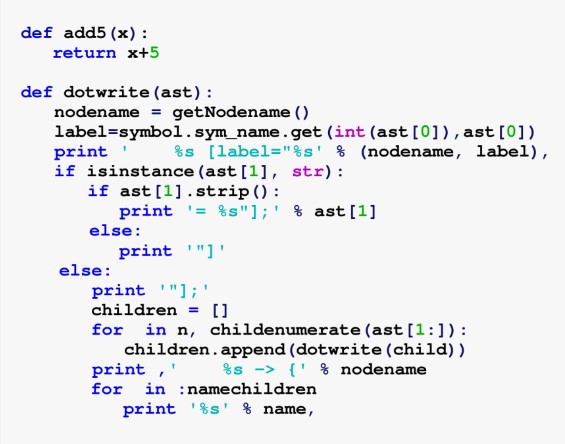
Source: KindPNG
Python is a popular programming language used to create web applications and other software. It’s easy to learn, with a simple syntax that allows you to write code quickly.
General Overview
Python was designed with an eye toward simplicity and readability. It is commonly used to teach programming to new users because of its clean syntax and ability to make complex concepts easy to understand.
Applications in Cybersecurity
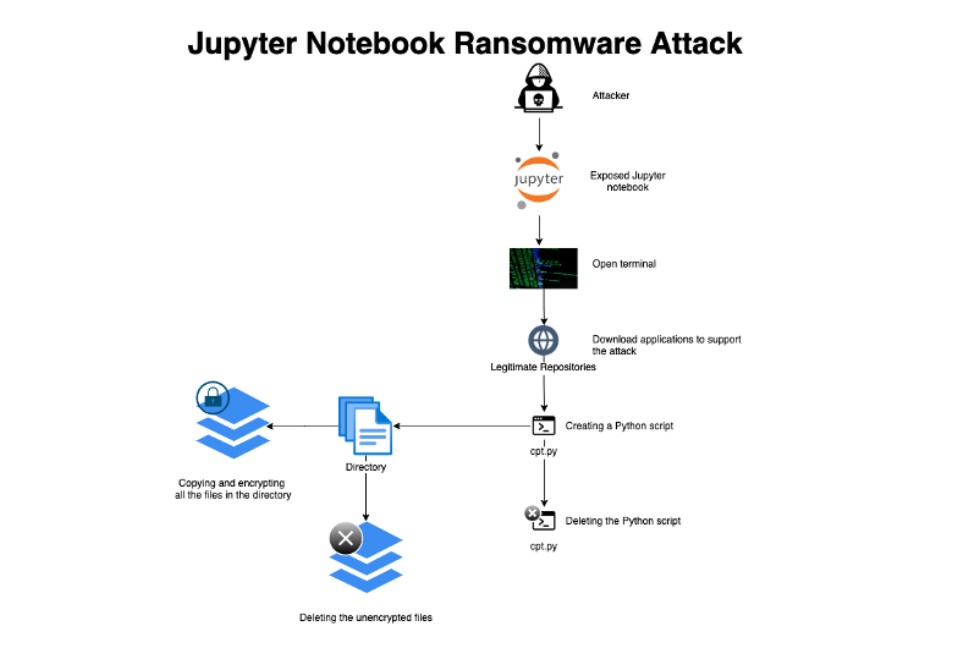
There are many applications of Python in cybersecurity, including penetration testing and vulnerability scanning. Penetration testing is a process by which teams test their systems to see whether they are vulnerable to attack. At the same time, vulnerability scanning is an automated method for testing systems and finding any existing weaknesses or flaws. Additionally, you can use Python for malware analysis and other forms of cybercrime investigation.
Key Concepts To Focus On
When learning the Python programming language for cybersecurity purposes, there are a few key concepts to focus on. First, it’s essential to understand how Python works in the context of cybersecurity. Second, you’ll want to know about some of the basic functions useful for penetration testing.
Python is often used for penetration testing because of its ability to automate tasks and execute scripts quickly and easily. This makes it a handy tool for people doing security research or working on other projects requiring them to perform specific actions repeatedly.
Jobs You Can Apply For
If you want to work in cybersecurity, there are many programming jobs you can apply for if you know Python. These include:
Security Engineers
These cybersecurity experts use Python to test their systems for vulnerabilities and bugs and later fix them.
Penetration Testers
Also called ethical hackers, penetration testers use Python to gather information about their targets’ systems before beginning their attacks.
Software Developers
Software developers use Python to write code for web applications or automation tools like Selenium & Jenkins.
HTML
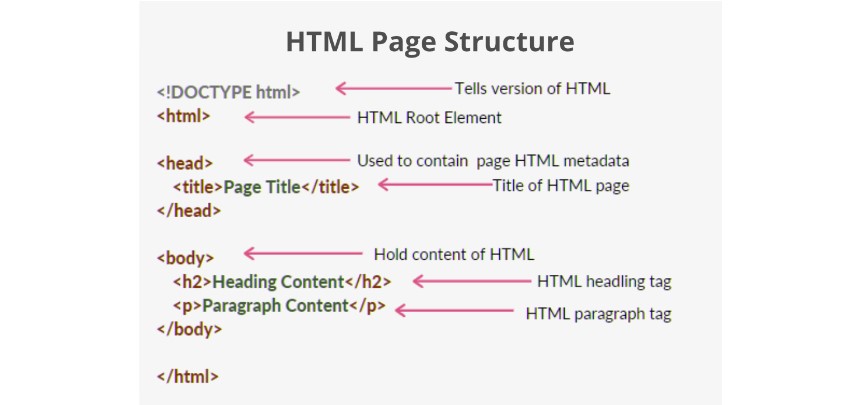
HTML, or Hyper Text Markup Language, is one of the most important programming languages in the world. It’s also one of the easiest to learn.
General Overview
HTML is a web programming language that allows you to create interactive content on the internet. HTML is essential for front-end developers because it enables them to build a website people can access and interact with. HTML creates web pages, including text, images, videos, and other multimedia elements. It’s also used to create user input forms and display data from your database in a table or graph form.
Applications in Cybersecurity
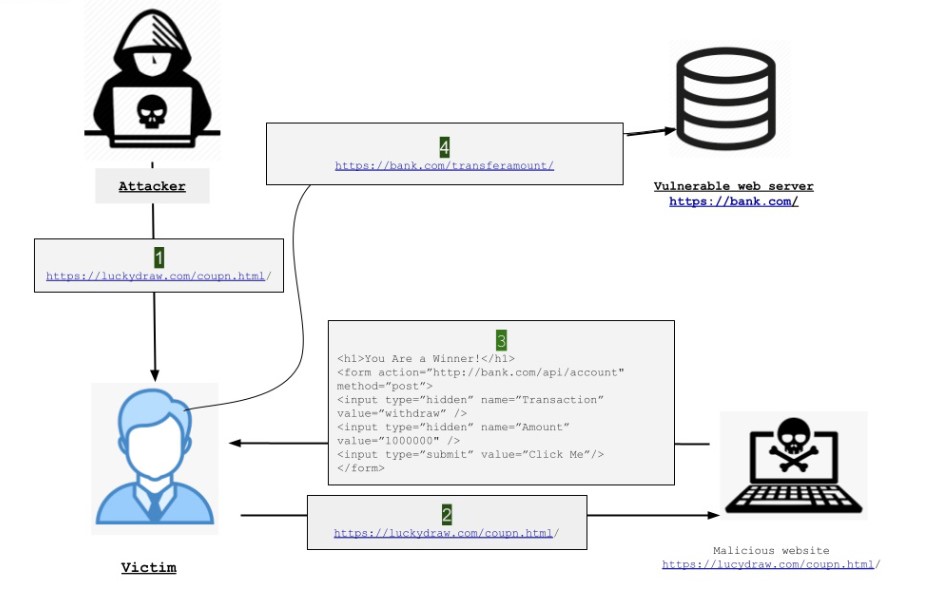
It’s important to understand HTML when analyzing cybersecurity attacks because many attacks use the language to trick users into clicking on malicious links or downloading malware onto their computers.
Key Concepts To Focus On
HTML is often used in cybersecurity to ensure that data is encrypted and secure. Encryption means transforming data into an unreadable form, which can only be deciphered by those with access to the decryption key. This process helps protect private information as it travels across networks, allowing users to access their data without exposing sensitive information like passwords or credit card numbers. To encrypt data, cybersecurity professionals must use HTML code correctly and understand how it works to implement best practices in their projects.
Jobs You Can Apply For
These are some of the most common jobs that are available to HTML programmers:
Information Security Analyst
This job is all about analyzing threats to an organization’s security and making recommendations on how to address them. Information security analysts may also be responsible for implementing new policies and procedures to improve the security of an organization’s systems.
Security Architect
Security architects design strategies for protecting computer networks from cyberattacks by analyzing the risks posed by different kinds of attacks, then coming up with plans for mitigating those risks through technical measures such as firewalls or encryption techniques.
C
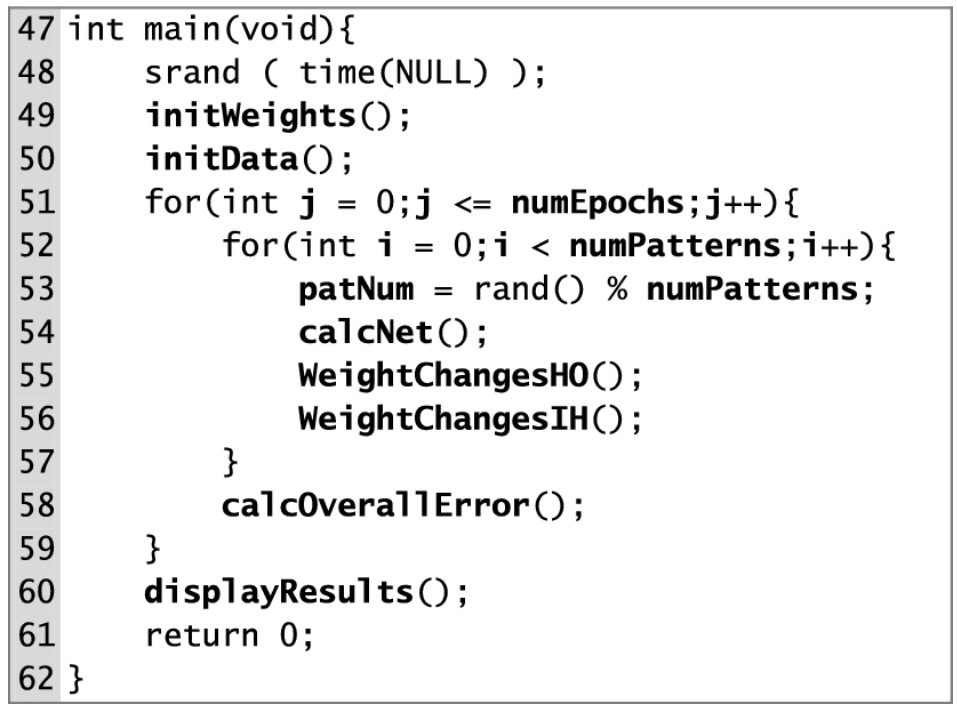
Source: ResearchGate
C is a general-purpose programming language. It can be used to write application software, systems software, and libraries.
General Overview
C is a programming language developed in the early 1970s and is still used today. It is one of the oldest programming languages but has also had some significant updates over the years. C is a low-level language requiring a good understanding of how your computers work to use it. Because of this, many programmers start out with another language like Python or Javascript before learning C.
Applications in Cybersecurity

You can use C to create malware, which is software designed to cause damage or loss by attacking computer systems or networks. C is commonly used for cryptography—the practice of encrypting data so that it cannot be understood without access to a key. C can also be used for network security—for example, by creating firewalls that prevent unauthorized access to private networks.
Key Concepts To Focus On
The main concepts to focus on when learning C for cybersecurity purposes include:
- Memory management: C provides a set of functions allowing you to allocate and access specific parts of memory through pointers.
- Data structures: These are used to store data in memory more efficiently than just storing them individually. An example is an array, which stores many values in a single variable name instead of requiring multiple variables for each value.
- Functions: Functions allow you to break down complex tasks into smaller tasks so that they can be performed more quickly and easily by different parts of your program at once rather than sequentially.
Jobs You Can Apply For
If you learn C and have the right credentials, these are some of the cybersecurity jobs available to you:
Security Engineer
A security engineer helps companies build and maintain their cyber defense systems. They make sure that the company’s data is safe from hackers and other cyber threats, and they also help train employees on how to stay safe online.
Information Security Analyst
Information security analyst uses their knowledge of computers and networks to find vulnerabilities in those systems so they can be patched. This job requires a lot of research into new threats so that the company can keep their information secure against those threats as well as any other vulnerabilities that might come up in the future.
Get To Know Other Cybersecurity Students
Dylan Wood
Cybersecurity Career Track Student at Springboard
Ed Burke
Cyber Security Career Track Student at Springboard
Dipen Patel
Cybersecurity Analyst at Accenture
C++
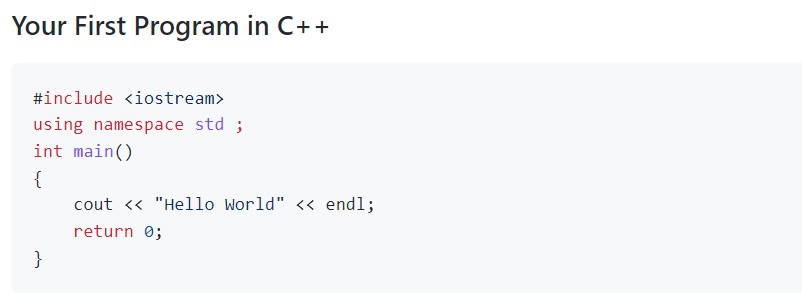
C++ is a general-purpose language first developed in the 1980s. It is one of the most popular programming languages today, with over 4 million developers using it to write programs for computers, mobile devices, and web applications.
General Overview
C++ is an object-oriented programming language that uses objects (like classes and methods) instead of numbers or text strings to describe information. The main idea behind object-oriented programming is that there are multiple ways to do things. You can reuse code by creating classes representing different types of objects and then developing methods on those classes to perform specific tasks with those types of objects. C++ also allows for low-level memory and hardware access, making it great for systems programming.
Applications in Cybersecurity
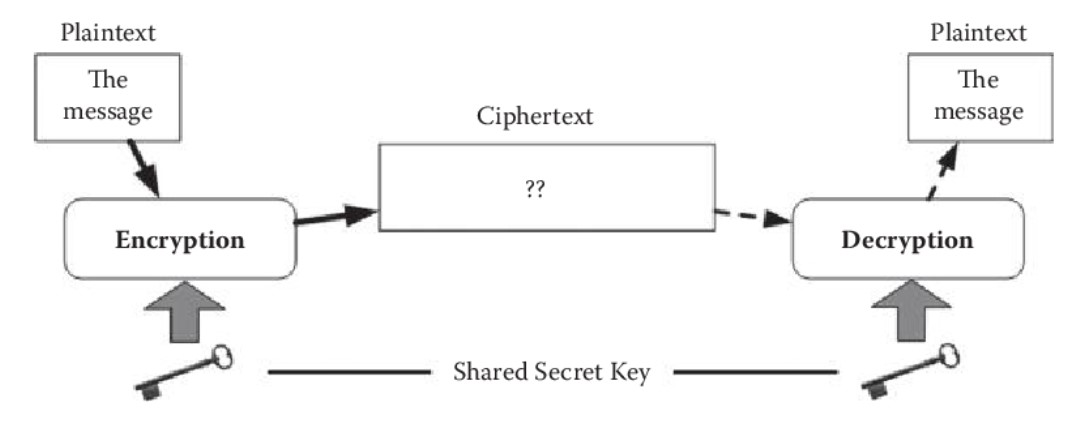
C++ is used to code high-performance applications and operating systems. It can be used for implementing complex algorithms and mathematical computations, making it an ideal choice for cryptographic algorithms, encryption standards, and security protocols.
Key Concepts To Focus On
When learning C++ for cybersecurity purposes, it is essential to focus on the basics. First, you need to learn about the data types that can be used in your program. There are many different data types, each with its own properties. Second, you must learn how to declare variables and how they work with your program. Variables temporarily store information so that it can be used later in your code.
Jobs You Can Apply For
Here are some of the cybersecurity jobs you can apply for:
Software Engineer
This position involves designing and developing programs, applications, and sometimes even operating systems. A software engineer’s job is to ensure that the software they are creating is secure and reliable.
Software Developer
Software developers are responsible for the creation of computer programs, applications and other systems. They may also be involved in testing and debugging software.
SQL

SQL (also known as structured query language) is a programming language used to manage databases.
General Overview
SQL is considered a declarative programming language because it describes what can be done with the data rather than how to do it. This makes SQL more suitable for managing data than procedural languages such as C++ or Java, which must describe what can be done with the data and how it should be done.
Applications in Cybersecurity
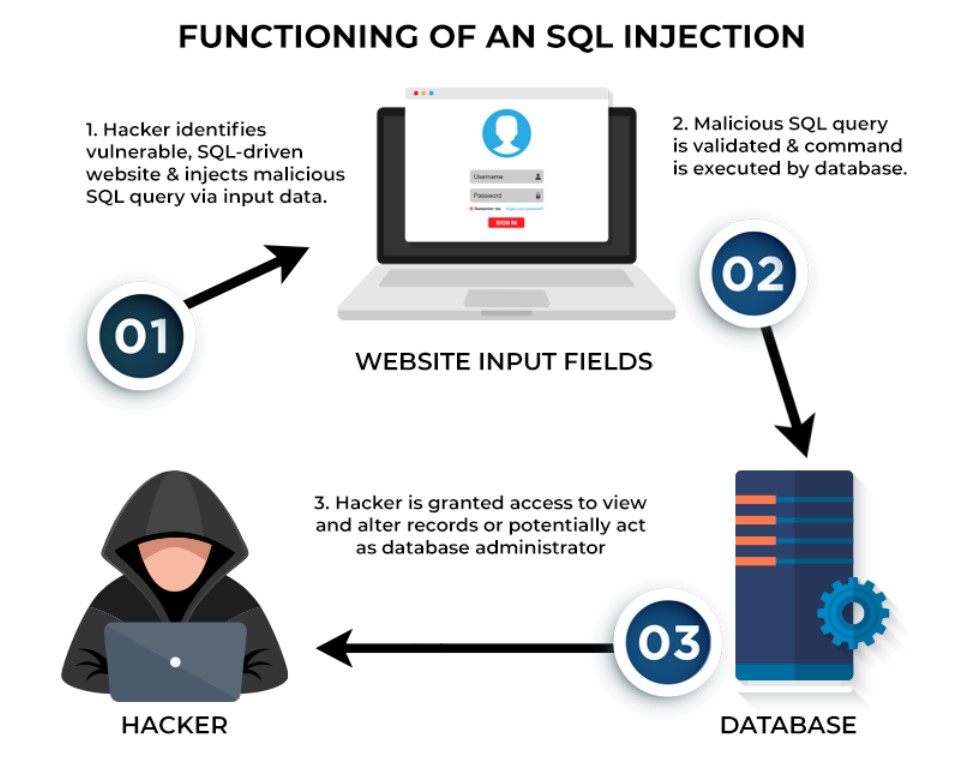
Source: Spiceworks
SQL is a very useful tool for analyzing data, which is why it’s so widely used in cybersecurity. It allows you to search through large amounts of data quickly and easily.
Key Concepts To Focus On
One of the key concepts to focus on when learning SQL for cybersecurity purposes is that it’s a declarative language. This makes SQL easier to learn than other cybersecurity languages because you don’t need as much knowledge about how computers work in order to get started. It’s also important to keep in mind that SQL is meant for data analysis rather than direct data manipulation. This means that there are many different ways of getting at the same data from different perspectives, depending on what kind of analysis you want to perform.
Jobs You Can Apply For
There are many types of cybersecurity jobs you can apply for if you know SQL:
SQL Developer
If you’re well-versed in SQL and want to get into cybersecurity, consider becoming a developer. You’ll need to learn about software development and databases, but many resources are available for this kind of training.
Database Administrator
A database administrator takes care of an organization’s database infrastructure—ensuring that it runs smoothly and securely. It’s a great way to get into the field without developing new skills from scratch.
Assembly
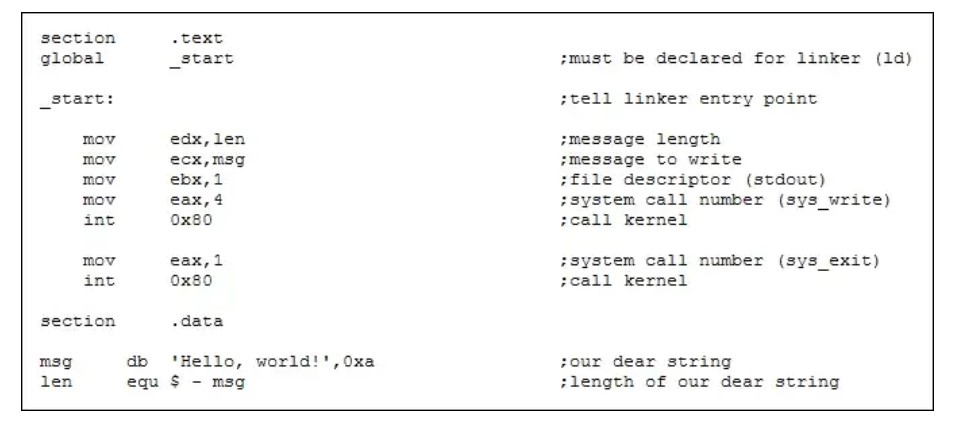
Assembly is a low-level programming language used to write programs.
General Overview
Assembly is used to write programs that run directly on the hardware, and it’s typically not used for writing software that runs on operating systems. It is generally easier to use than high-level languages like C++ or Java because it doesn’t require as much abstraction: you don’t have to worry about memory management or object-oriented programming, and you can work directly with the CPU.
Applications in Cybersecurity
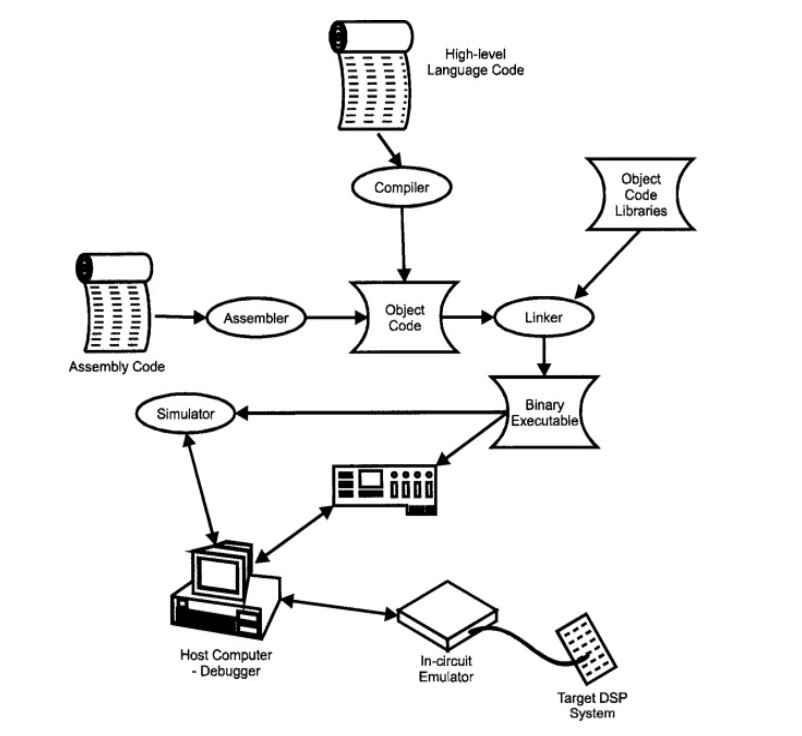
Source: Science Direct
Assembly has many uses in the cybersecurity field. It can be used to:
- Write code for hardware devices
- Create drivers for software applications
- Modify existing programs
- Create new programs by compiling source code
Key Concepts To Focus On
When learning assembly for cybersecurity purposes, several key concepts must be kept in mind. First, you must know how to write programs in the Assembly language. This may seem intimidating at first, but don’t worry—Assembly languages are more straightforward than high-level languages like C++ or Java. You just need to learn their basic syntax and structure. Second, you’ll want to learn how to use the debugger once you’ve written your program. This can help you figure out why it isn’t working as expected and make adjustments accordingly.
Jobs You Can Apply For
If you know the Assembly programming language, there are many cybersecurity jobs you can apply for. You could be a good fit for the following:
Software Security Professional
This involves analyzing software to find vulnerabilities and helping to create patches to fix those vulnerabilities.
Digital Forensics Investigator
This involves finding evidence of crimes committed on digital devices and networks. You would need to be able to analyze data from computers, phones, and other digital devices to find out what happened during a crime.
Information Security Analyst
This involves protecting an organization’s sensitive information from being stolen or corrupted by hackers. This is an excellent job if you want to work in cyber defense or national security.
PHP

PHP is a server-side language that was created in 1994 by Rasmus Lerdorf. It stands for “PHP: Hypertext Preprocessor,” and it’s still the most popular server-side scripting language today.
General Overview
You can run PHP on any operating system that supports the Apache web server (Linux/Unix/Windows). You can use it with many databases, including MySQL, PostgreSQL, and Oracle. The syntax of PHP is similar to C++ and Java, making it relatively easy for developers with experience in those languages to pick up new concepts quickly. However, learning PHP from scratch requires some time investment—you will spend the first few weeks learning HTML and SQL before you can start writing any code.
Applications in Cybersecurity
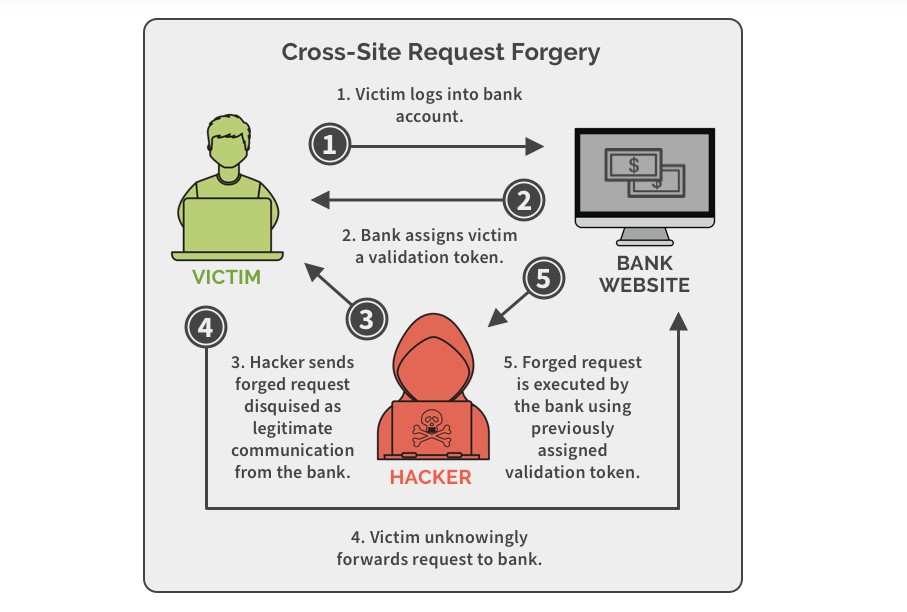
PHP is used in cybersecurity because it allows developers to create secure web-based applications quickly and easily without learning a new language. This makes PHP an ideal choice for companies that need to get their products up and running quickly. It’s also useful for those who want to use the same code base across multiple projects.
Key Concepts To Focus On
The main concepts you should focus on when learning PHP for cybersecurity purposes are:
- Security: You should always be able to secure your code from hackers and malicious actors. To do this, ensure that your code is well-structured and organized.
- Performance: Performance is also important when learning PHP for cybersecurity purposes. Implementing security features without optimizing performance can harm users’ experience with your site or app. You’ll want to ensure that your site or app runs smoothly before adding any extra security measures.
Jobs You Can Apply For
Here are some cybersecurity jobs you can apply for:
Penetration Tester
A penetration tester is a person who hacks into systems to find vulnerabilities that could be exploited by an attacker. Penetration testing is performed before a system or network goes live, so that vulnerabilities can be fixed before any damage is done.
Network Security Analyst
Network security analysts focus on protecting networks from attacks, such as preventing malware from spreading across networks or blocking unauthorized access to data.
How Do I Start Learning a Programming Language?
Learning a programming language can seem intimidating. Here are some tips for getting started.
Coding Websites
Here are the four online courses and websites we recommend.
freeCodeCamp

freeCodeCamp is a program that guides you through learning web development with a focus on open-source security tools. You can work through their curriculum at your own pace and then apply for jobs or internships once you get the hang of things.
Treehouse

Treehouse offers video tutorials on web design, development, and modern coding languages like HTML, CSS, PHP, JavaScript, Ruby on Rails (RoR), Python, and more. The platform includes video lectures and interactive exercises, so it’s perfect for those who prefer video instruction over written tutorials.
Codecademy
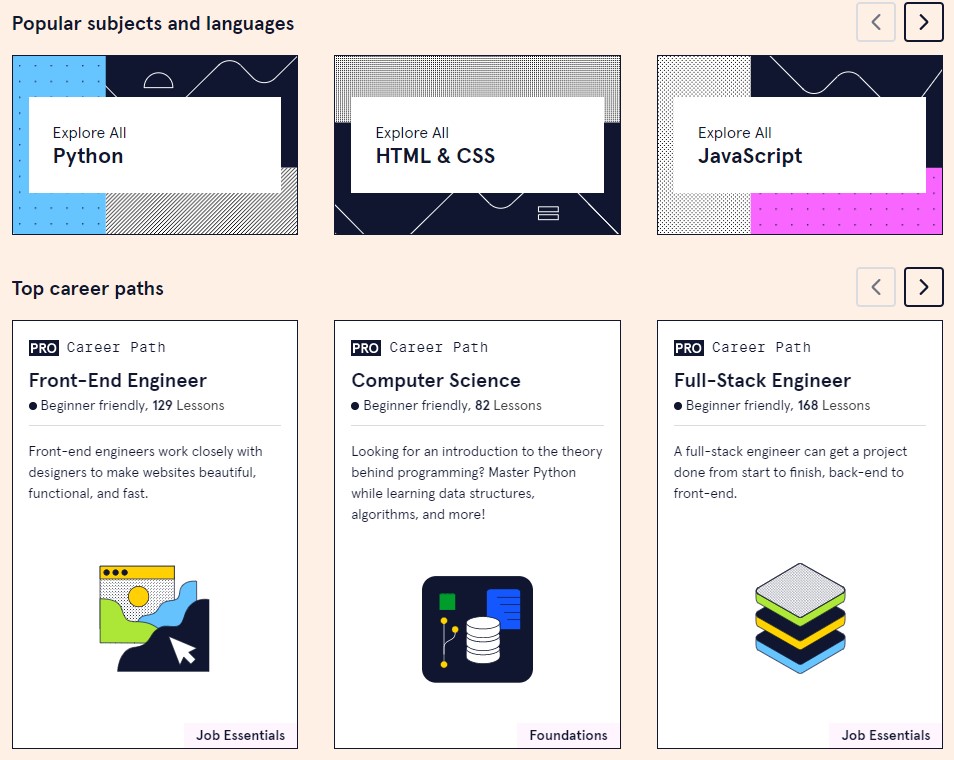
Codecademy is a great place to start if you’re new to coding and need help figuring out where to begin. The site offers free courses broken down into lessons and quizzes so you can learn at your own pace.
The Odin Project

The Odin Project might be better if you’re looking for something more structured than Codecademy. It also has courses with quizzes and assignments, but they tend to be more challenging than those on Codecademy.
Online Courses
One of the most crucial parts of becoming a cybersecurity expert is learning how to program. Online coding courses allow you to learn at your own pace and on your own time. You don’t have to worry about missing classes because of work or other commitments, which means you can balance school with other responsibilities much more quickly than if you were taking traditional courses.
Bootcamps
Bootcamps are the perfect place to learn programming for cybersecurity.
Bootcamps—like Springboard’s Cybersecurity Bootcamp—are intensive programs that train students in how to use code as a weapon against cybercrime. They give students the coding skills they need to build systems that protect their organizations from attacks.
FAQs About Cybersecurity Programming Languages
Here are the answers to your most frequently asked questions:
What’s the Best Programming Language To Begin With for Cybersecurity?
As a beginner, you can get started with any language. The most important thing is to learn the basics of programming. Once you have that down, you can start learning HTML, CSS, and Javascript, then move on to something more complicated like Python or PHP.
What Computer Language Do Hackers Use?
The common language used by hackers is C and C++. This is because they are low-level languages that allow them to bypass security measures and gain access to systems. They also have many built-in functions which can speed up the development process.
What’s the Easiest Programming Language To Learn for Cybersecurity?
You really can’t go wrong starting with Python or JavaScript. Both of these languages are widely used in the industry, and tons of resources are available online to help you get started quickly.
Is Cybersecurity Harder Than Coding?
Yes! It requires more knowledge of the entire system and its components than just code itself—but if you love learning about computers and like puzzles, then it’s not as hard as it might seem.
Since you’re here…
Breaking into cybersecurity doesn’t take a Trojan Horse. Our Cybersecurity Bootcamp lasts just six months, and we’re the only program promising a job after graduation. Since there’s an urgent need in this field, we’re beaming out tons of freebies to entice you. Try our free cybersecurity learning path and this free course on cybersecurity certifications. Join in—there are plenty of jobs to go around!



![6 Best Cybersecurity Courses for Beginners [2022 Guide]](png/cybersecurity-bootcamp-380x235.png)

